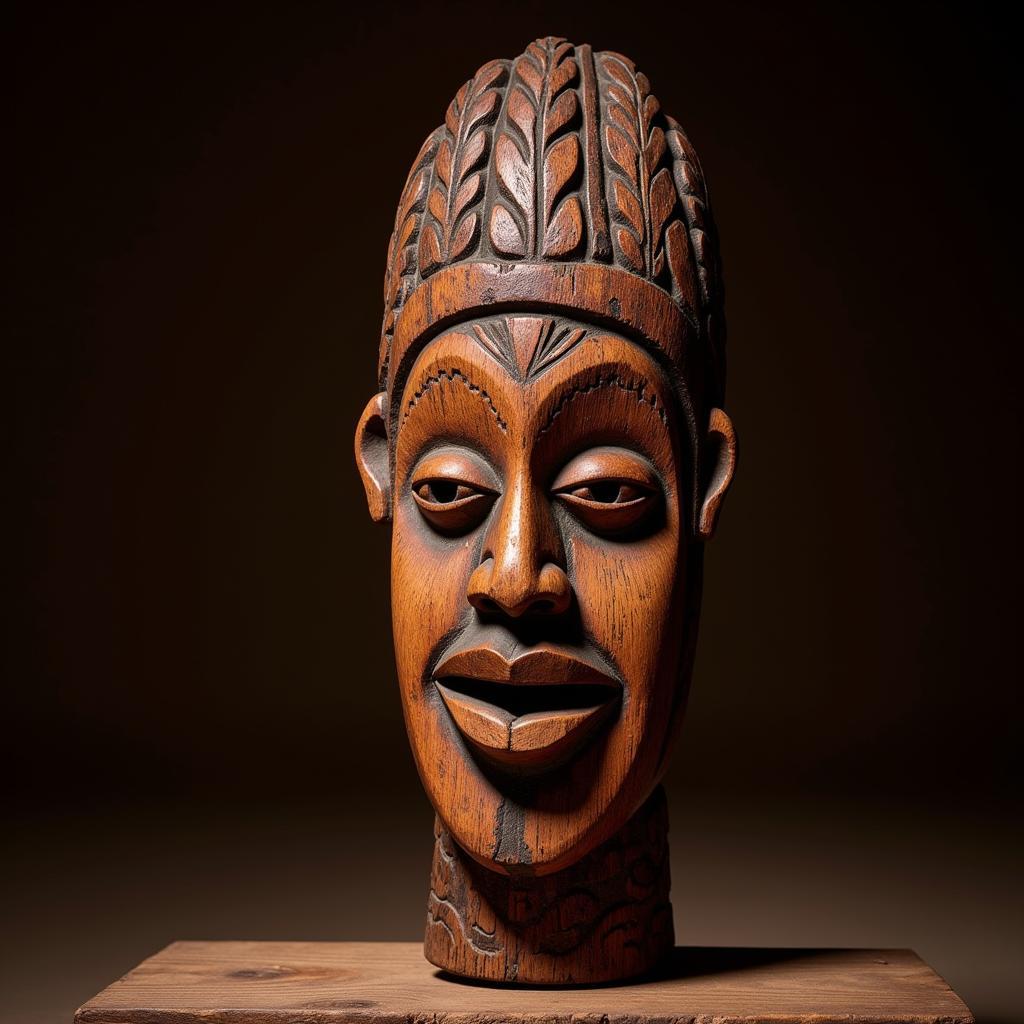Uncovering the Secrets of the African Burial Ground
The term “African Burial Ground” evokes a sense of mystery and history, whispering tales of forgotten lives and ancestral connections. These sacred spaces, often unmarked and overlooked, hold invaluable insights into the lives of African communities in the diaspora, particularly during periods of slavery and colonization. Beyond their historical significance, African burial grounds serve as poignant reminders of cultural resilience, spiritual beliefs, and the enduring fight for recognition and respect.
A Window into the Past: The Significance of African Burial Grounds
African burial grounds are much more than just places of interment; they are time capsules preserving fragments of history often absent from traditional narratives. These grounds provide crucial archaeological evidence of burial practices, social structures, and daily life within African communities. The orientation of the bodies, the presence of grave goods, and even the skeletal remains themselves offer glimpses into cultural beliefs, trade connections, and the health conditions endured by these populations.
For example, the discovery of shells and beads originating from distant lands in some African burial grounds speaks to the extensive trade networks that existed within Africa and beyond. Similarly, the presence of specific plants and herbs within graves can illuminate traditional healing practices and spiritual beliefs surrounding death and the afterlife.
Beyond Bones and Beads: Deciphering Cultural Practices
One of the most fascinating aspects of studying African burial grounds lies in deciphering the cultural practices reflected in the burial rituals. While variations exist across different regions and time periods, certain commonalities point to shared beliefs and traditions. For instance, the act of burying the deceased facing east, towards the rising sun, is prevalent in many African cultures, symbolizing rebirth and the continuation of life after death.
The inclusion of specific grave goods also offers valuable insights. In some cultures, tools and weapons were buried with men, while women were often buried with household items or jewelry. These practices highlight the gender roles and societal norms of the time. Furthermore, the discovery of broken pottery or evidence of feasting ceremonies near burial sites suggests rituals meant to honor the dead and facilitate their journey into the afterlife.
Unveiling Untold Stories: Case Studies of Prominent African Burial Grounds
Several African burial grounds around the world have garnered significant attention, shedding light on both the historical injustices and the cultural richness they represent. One such example is the African Burial Ground National Monument in New York City. Discovered in 1991 during construction work, this site revealed the remains of over 400 enslaved Africans who lived and died in colonial New York. The discovery served as a stark reminder of the forgotten history of slavery in the North and spurred a national conversation about racial injustice and the importance of preserving African American heritage.
Another significant site is the Freedom Park Heritage Site in South Africa. This site, once a cemetery for Black South Africans during apartheid, now stands as a memorial to those who were forcibly removed from their homes and subjected to segregationist laws. The site holds mass graves, individual graves, and a monument inscribed with the names of those buried there, offering a poignant reflection on the brutalities of apartheid and the ongoing struggle for racial equality.
Honoring the Ancestors: The Importance of Preservation and Remembrance
Protecting and researching African burial grounds is essential for understanding the past and shaping the future. These sites are not merely historical curiosities; they are sacred spaces that hold deep cultural and spiritual significance for descendants of the African diaspora. Preserving them ensures that the stories they tell are not lost to time and that the legacies of those buried there are honored and remembered.
Moreover, studying these burial grounds can help to challenge historical narratives that often marginalize the experiences of African communities. By piecing together the fragments of evidence they contain, researchers and communities can gain a more nuanced understanding of the cultural practices, social structures, and everyday lives of those who came before us.
Dr. Abena Asare, a leading archaeologist specializing in African burial grounds, emphasizes the profound impact of these sites: “These grounds are tangible links to our ancestors, offering a profound sense of connection and belonging. They remind us of the resilience of the human spirit and the enduring power of culture, even in the face of oppression and adversity.”
FAQ: Uncovering the Significance of African Burial Grounds
What are African burial grounds?
African burial grounds are sacred spaces where people of African descent were laid to rest, often reflecting unique cultural practices and beliefs.
Why are African burial grounds important?
They provide invaluable insights into the lives, customs, and beliefs of African communities, particularly during periods of slavery and colonization.
What can we learn from studying these sites?
We can gain a deeper understanding of burial rituals, social structures, trade connections, health conditions, and spiritual beliefs of these communities.
What are some notable examples of African burial grounds?
The African Burial Ground National Monument in New York City and the Freedom Park Heritage Site in South Africa are two prominent examples.
Why is it important to preserve and protect these sites?
Preservation ensures that the stories and legacies of those buried in these grounds are honored and remembered, while also contributing to a more complete understanding of history.
Need Help Tracing Your African Roots?
Contact us today! Our team at African Life is dedicated to helping you explore your heritage. We can provide resources, guidance, and support for researching your family history and connecting with your African roots.
Phone: +255768904061
Email: kaka.mag@gmail.com
Address: Mbarali DC Mawindi, Kangaga, Tanzania
We are available 24/7 to assist you on your journey of discovery.

